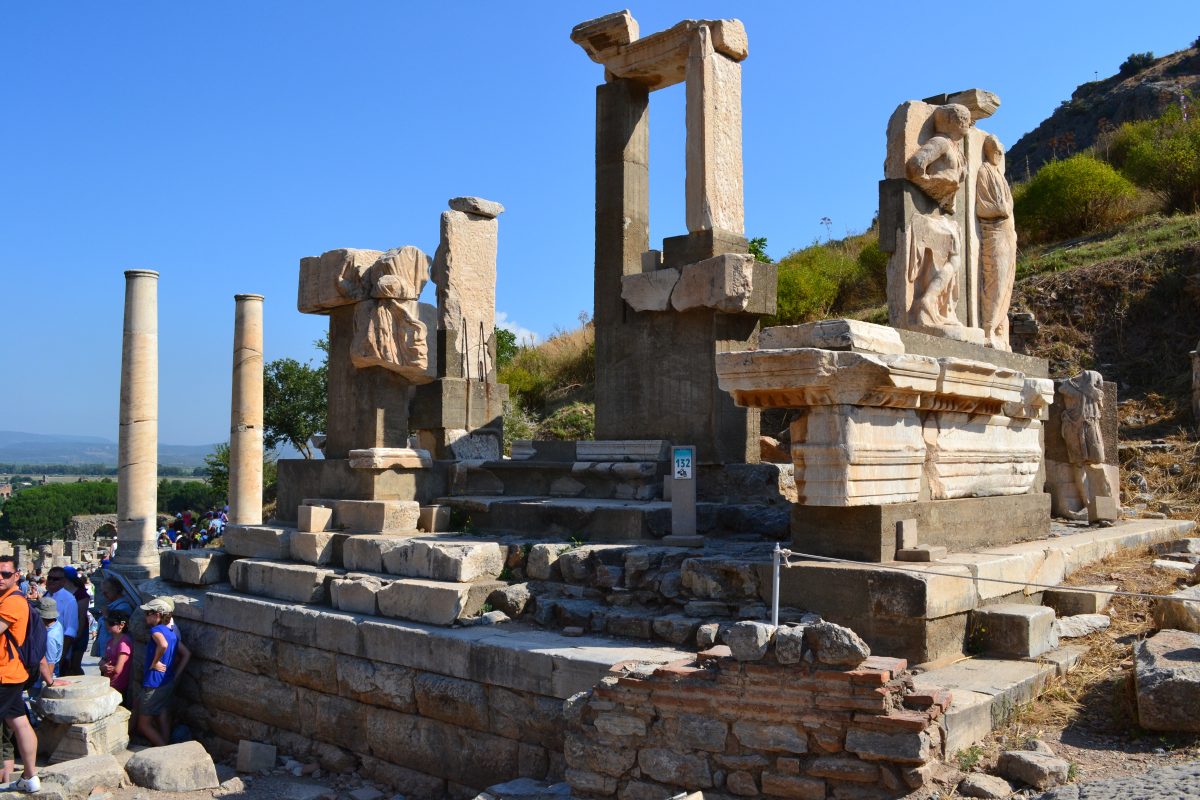Background Passage: Hebrews 12:1-2; Matthew 13:1-23
The passage below falls easily into my list of 10 favorite Bible verses. Born with an athlete’s mind, if not an athlete’s talent, I find I can relate to the imagery suggested by the writer of Hebrews. Hebrews was written to a group of Christian believers who faced the temptation to abandon their faith in the face of fierce opposition and outright persecution.
“Therefore, since we are surrounded by
so great a cloud of witnesses,
let us throw off everything that hinders
and the sin that so easily entangles,
and let us run with perseverance
the race marked out for us.
Let us fix our eyes on Jesus,
the author and perfecter of our faith…”
The astute writer drew upon the life testimonies of men and women we might place in our Hall of Honor for the faith they demonstrated when God called them to serve. He wanted these struggling brothers and sisters to think of these great people as spectators in the crowd, encouraging them in their Christian walk.
Each of us can come up with a list of our personal heroes of faith whose lives inspire, encourage and strengthen our own. When life gets tough, thinking about those who lived through their own share of disappointments, despair and defeat can keep us pressing forward in our own spiritual journey.
To get to where I want to go with this devotional thought, let’s first hit a couple of quick points.
First, we must cast off all that slows us down or trips us up. The language of the passage talks about being weighed down, burdened, or carrying a bulging, heavy load. Using the writer’s imagery, we think about it in terms of a race or athletic contest.
There is a reason why runners take off their warm-up suits before the start their race. There is a reason their track shoes are all sole and little substance. Everything they wear is lightweight. To gain a runner’s edge, they wish to get rid of anything that would slow them down.
I remember my high school football coach putting lead weights around my ankles during practice and making me run the drills. Every move felt like I was slogging through mud. I don’t know if I actually moved faster when the weight was removed, but it sure felt like it.
That is the mental picture the writer of Hebrews is painting. Get rid of what might keep you from running the race God calls us to run. It is easy to see times in my Christian life when I carried weight I didn’t need to carry. Bad habits. Bitterness. Irritation. Regret. Poor choices. Lost focus. Selfishness. Arrogance. It is sin that wraps itself around our hearts and our feet until it causes us to stumble. Sin that trips us up.
Living the kind of life God desires for us requires us to be agile and quick in our response to his call and his will. We simply can’t do that when we carry around our burdens or try to walk with weights on our feet. We can’t move when our feet are trapped in a tangle of sin.
Scripture tells us to throw it off, untangle our feet, and get back in the race.
Secondly, we must be in spiritual shape to stay in the race. It’s easy to stay committed to Christ for a time. It’s much hard to have staying power. The writer of Hebrews says,
“…run with perseverance…”
Depending on your Bible translation, this admonition may read, “…run with patience…” or “run with endurance.”
Those early Christians lived during a time when calling oneself a Christian was dangerous. When faced with economic sanctions and life or death choices, many turned away from the faith to which they were called. Before we get too high on our horse and claim superior faith, we need to think about those times when we set aside our own faith for the convenience of the day. A commitment made to God that we failed to keep. A promise made that we broke. A holy fire within that we let smolder.
Jesus talked about those moments in life when he shared the parable of the sower. He spoke of the farmer’s seed that fell on the thin soil. It sprouted quickly and withered just as fast. He told his disciples later that the plant is like a person who receives God’s word gladly and sets it aside when life gets tough. The faith which grew so promisingly, withered in the heat of the day.
When we give our lives to God and accept his gift of grace, it is not a commitment of convenience that allows us to walk away when challenges come. Salvation does not vaccinate us against a pandemic of problems. Sometimes the best lessons we learn come when we look back on our spiritual walk and see how God worked in our lives during times we struggled most to see him and sense his will.
The writer of Hebrews encourages us, “be patient.” “Persevere.” “Endure.” “Finish what we started.”
Here’s the third point…the idea that caught my attention when reading this passage this time. The writer of Hebrews talked about the “race marked out for us.”
“…the race marked out for us…”
In one sense, we are all running the same race…our spiritual journey is all about following God’s call. Being obedient to his will for our lives. In another sense, we each have our own race to run. You can’t run mine and I can’t run yours. It is my unique call. God, in his wisdom, laid out the track that he asked me to run.
There are some believers in the world who must run a race of real persecution, living out their faith beset by those who would punish them for believing in Jesus. Their race is more difficult than the race I run.
There are some believers who daily face abuse, rejection, poverty, sickness, loneliness. There are Christians who face heartbreak, unimaginable loss and financial ruin. It is not the race they wished for, but it is the race they must run.
God has given me a race to run. He asks me to stay in my lane because that’s where the things I need to learn and his best blessings will be found.
When we were all younger, three of us would meet each evening after our kids were put to bed for a nightly jog. After several months of running three miles a night, one of us, I don’t remember who, had the brilliant idea to run a half-marathon…13 miles and change. That meant some nights we were running five miles and some Saturdays much longer in preparation.
Though all of us were a bit more slender in those days, I didn’t have the runner’s mindset nor the runner’s body. I was forever falling behind. When we began to stretch out those nightly runs, I usually fell behind quite a bit.
At some point, I found a shortcut. About midway through our routine route, we entered a neighborhood that circled around and found the same road on which we had been running. I discovered if I took a left when they went straight, I would meet them coming back, knocking several blocks off my run.
It seemed to be a brilliant strategy as long as I could withstand their less than gentle ribbing. It seemed a good idea until we began our official half-marathon race in the hills of Huntsville, Texas. All those days taking a shortcut took their toll. By they time I finished the race that day, exhausted and spent, they were sipping lemonade and eating bananas in the shade with their feet up. I just wasn’t in as good a physical condition as my friends because I took months of shortcuts.
God, in his infinite will and wisdom, has our life’s course laid out. Every shortcut, every detour we take because it’s easier, erodes our spiritual condition. In “…the race marked out for us” there are no shortcuts that honor God’s purpose and play for our lives.
The good news is that whatever race we have been given to run, and whatever shortcuts we took that put us on the wrong path, the writer of Hebrews gives us the key to finishing well.
“Let us fix our eyes upon Jesus…”
The best runners in the world leave the starting blocks with their eyes on the tape at the finish line. They don’t look at the other runners. They don’t glance into the stands. They run with their eyes on the tape.
The world dangles a lot of attractive philosophies and practices in front of our eyes. We hear the cheers of those who would encourage us to run a different race. The only counter to the siren call of others is to keep our eyes fixed on Jesus.
He is faithful. He is trustworthy. He will never forsake you. This is exactly what the writer of Hebrews is telling his persecuted brothers and sisters. It is the message they needed to hear.
Run the race you’ve been given. Throw off anything that keeps you from running well. Run with patience and endurance. Stay in your lane. Take no shortcuts. Keep your eyes on Jesus.
It is the message I needed to hear.



